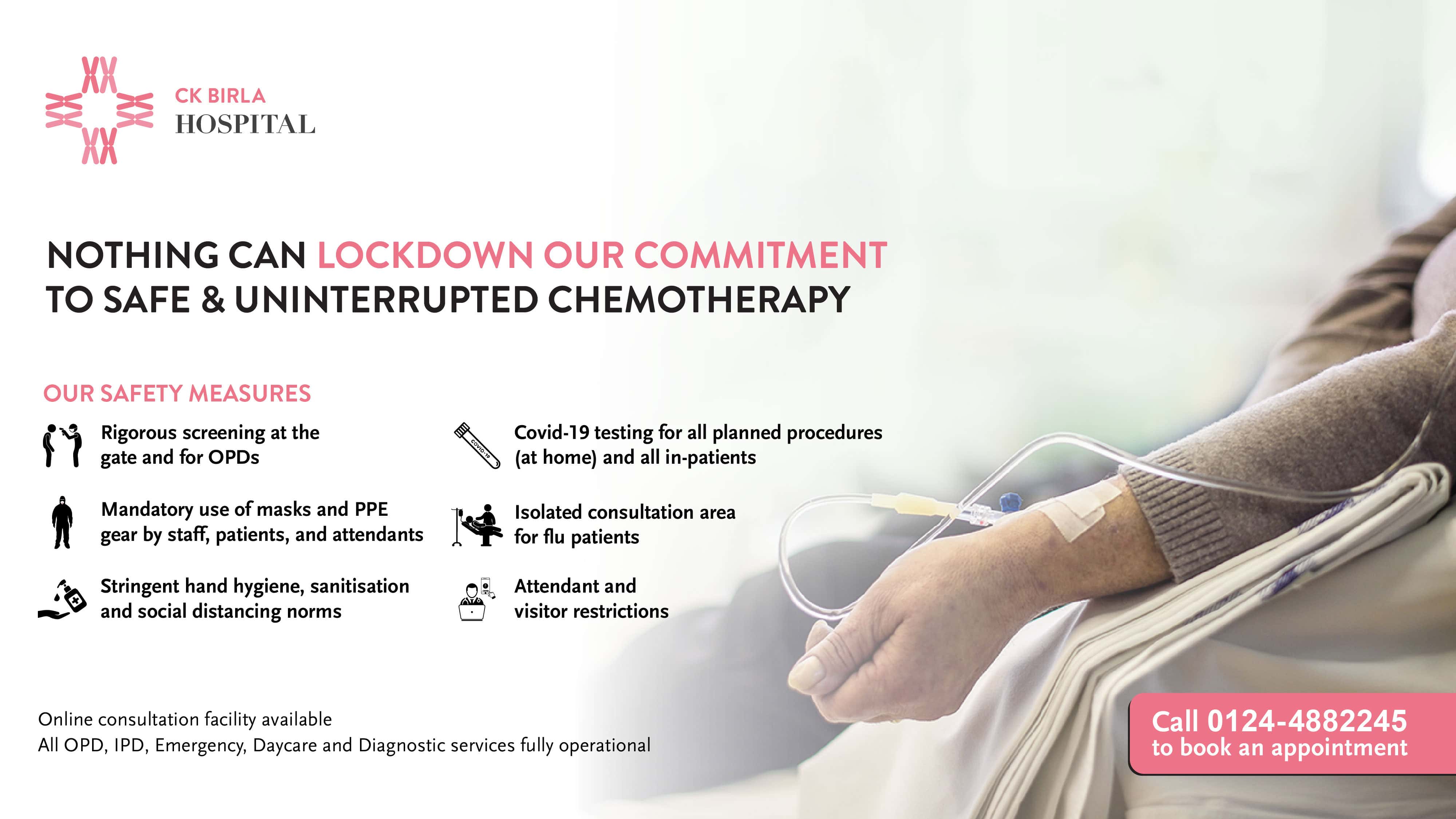
Coronaviruses are a family of viruses that can cause common cold as well as more severe respiratory diseases such as Severe Acute Respiratory Syndrome (SARS) and Middle East Respiratory Syndrome (MERS). COVID-19 is the name of the disease caused by a new strain of coronavirus called SARS-CoV-2, reported in China for the first time in December 2019.
The new coronavirus spreads in the same way as common cold or influenza. Experts believe that most individuals who contract the novel coronavirus will experience only mild to moderate symptoms, such as fever, tiredness, body ache, sore throat, and diarrhoea, and can be cured at home. However, according to the WHO and other health experts, people with weakened immune systems, such as diabetics, cancer patients, or those undergoing chemotherapy, are at a higher risk of experiencing a more severe form of the illness.
Table of Contents
Unfortunately, the answer to this question is probably yes. Several reasons put cancer patients at a higher risk for COVID-19. First and foremost, some forms of cancer treatment suppress the immune system, which makes them more susceptible to catching infections, including the novel coronavirus. Advanced types of cancer are also known to impact critical organs, such as the lungs and kidneys, making it harder for cancer patients to withstand a severe illness.
According to a study in China, COVID-19 patients with cancer and survivors of cancer showed a higher incidence of severe complications, including intensive care, mechanical ventilation, and death, as compared with other patients who did not have cancer.
While this study was conducted using a small group of patients, it is best for cancer patients to should follow the utmost precautions and limit social interactions to prevent any exposure to the virus.
At present, there is no vaccination to prevent COVID-19 or any specific treatment or cure. Therefore, the best way to prevent any complications is by avoiding exposure to the virus.
If you are a cancer patient or at a higher risk for COVID-19 due to other medical conditions, such as diabetes, heart disease, lung disease, chronic liver or kidney diseases, etc., it is important to be extra cautious to minimise your chances of contracting the disease or worsening your existing conditions. Especially for cancer patients, it is vital to:
Coronavirus infection is usually severe in patients who are suffering from pre-existing conditions like cancer, diabetes, hypertension. So, please take all precautions to prevent infections and follow these tips to stay healthy during the coronavirus pandemic:
In addition to these precautions, try to clock in at least eight hours of sleep, eat nutritious food, and do some form of exercise (if possible) to boost your immunity.
Hospital visits are linked to a higher risk of infection, which is why patients have been asked to minimise hospital visits. However, if you are already undergoing treatment for your cancer, you need to discuss the situation with your healthcare provider in detail. Talk about planning your next visit and the risk of missing a medical appointment vis-à-vis the possibility of increased exposure to the virus.
Medically speaking, while some cancer treatments can be safely delayed, others cannot. However, due to the excessive burden on healthcare infrastructure, many hospitals are not providing chemotherapy to cancer patients presently.
At the CK Birla Hospital, Gurgaon, patients can seek a consultation via telemedicine and video conferencing to minimise their hospital visits while continuing their regular treatment to the best extent possible.
In addition, cancer patients who need chemotherapy urgently can visit the hospital, even during the pandemic. Our dedicated healthcare staff maintains the highest standards of hygiene and other precautions to limit patients’ exposure to coronavirus.

If you are a cancer patient, have a frank discussion with your oncologist about continuing or delaying your treatment during the coronavirus outbreak.
Many patients around the globe have recovered from the novel coronavirus, thanks to early detection and proper treatment.
If you are experiencing a high fever, sore throat or shortness of breath, or think you may have come in contact with someone who tested positive for COVID-19, call up the government helpline number shared below and inform them of your concern and medical history.
The Gurgaon Nodal Centre, SGT Medical College Hospital & Research Institute, Budhera, Gurgaon – 122505, Near Sultanpur Bird Sanctuary or call the COVID-19 Helpline for Gurugram (M: – +91 9911519296; L: +91 124 2322412)
The Delhi Nodal Centre, RML Hospital, Baba Kharak Singh Road, Near Gurudwara Bangla Sahib, Type III, Connaught Place, Delhi, 110001: 011 22307145 / 011 22300036 CATS Ambulance (9717655774)
We also suggest that you stay indoors and avoid unnecessary physical contact until you are tested negative for COVID-19 to prevent the spread of the virus.